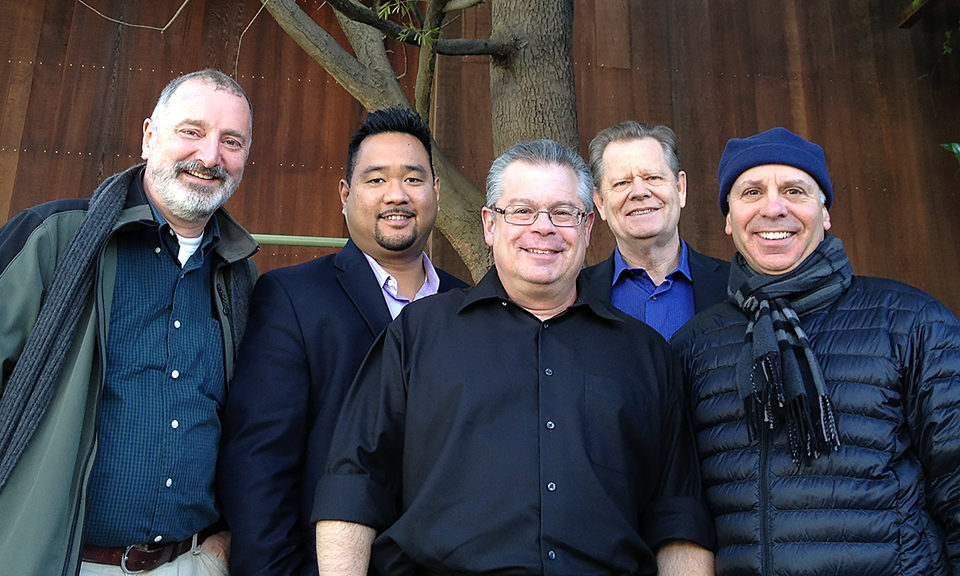
SURVIVING BY DINT OF IRONY
BERKELEY—The best lecture-demonstrations on the music and life of Dmitri Shostakovich these Saturday mornings has unfolded by way of the informal visiting San Franciscans of the Alexander String Quartet and the entertaining lecturer Robert Greenberg. These “play-lects” have been profound, funny, insightful, leading you to hear the master’s music through new ears.
Shostakovich (1906-75) you recall was under the Soviet yoke all his life. Furthermore, at least till the 1960s, he was derided by the cognoscenti over here as being too superficial, too repetitive, and too much the Soviet political puppet who was living off klutzy tunes.
Today, as ASQ cellist Sandy Wilson pointed out, the composer is viewed as eloquent and long misunderstood. The strict thought control of the regime thwarted any independence or display of true opinion.
His music is seething with irony, per lecturer Robert Greenberg. In effect, the composer had rebelled against the political strictures placed on him in the only manner that worked while keeping him out of the dreaded gulags: irony. Which worked, but just barely.
If Shostakovich had a mantra, it read: Through irony, you can break the bonds of repression.
He had been perilously close to the gulag summons by the commissars, roundly denounced in the national newspaper, officially, in two decades, even though he reigned among the two or three most recognized Soviet composers internationally. The government also arrested those around him, including the wife, taking away his money-earning jobs, and using every intimidation means possible to weaken him.
Already in his 50s he had become a nervous wreck. Once in rehearsal in Moscow, the Borodin Quartet changed a couple of notes to pizzicato (plucked strings), whereupon the ever-uneasy composer looking on began a twitching frenzy that ended that experiment immediately. “I’m feeling old,” he told one acquaintance, who added that he already looked 100 years of age. He even contemplated suicide.
Well, the prevalent explanation of his unusual music today is that he outwitted them all. Those simple rum-de-dum tunes were to satirize the musical tastes (very low) of the officialdom. The repetitions were a reflection of the sterile life in the USSR. And the musical burlesques in his Scherzos were pure irony—the only type of protest that the commissars of the police state could not see through.
Lecturer Greenberg digs into countless sources to characterize and analyze the very private composer, who left no diaries (would any one have dared?). Whereupon the Alexander Quartet launches into performance with a quartet or two, full of biting wit and artfully rendered music. All 15 string quartets are included; this particular December day, it was the pithy and somber Eleventh of 1966.
The Eleventh is a brevity and oddity, in seven movements, no less, yet only a quarter-hour long. This Scherzo is not the usual joke, but rather an angry outburst. The Etude part is a dunning fast figure done over and over, like the fearsome Hanon piano-exercise books. The Elegy is an “Eroica”-like funeral march—but reset in three-quarters time, impossible to march to.
Such is the adventure of discovering the maligned, misinterpreted and persecuted composer, who brought the concept of irony to a peak in music history.
Once this series is completed, the same play-lect team will do similar service for Brahms and Schumann in San Francisco.
MUSIC AND LIFE OF SHOSTAKOVICH, in “play-lects” by the Alexander String Quartet, and commentary by Robert Greenberg. Five-concert cycle of all 15 quartets, to continue mornings Jan. 12, 26 with the late quartets, all five at St. John’s Church, Berkeley, CA. For info: (415) 392-2545, or go online.